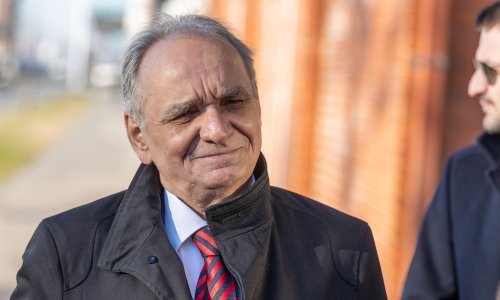The leader of the Croatian People's Party-Liberal Democrats (HNS), Radimir Cacic, on Tuesday proposed investing in the construction of the underground gas storage facilities Okoli 2 and Benicanci, describing them as investments that can give a boost to the economy, prevent winter gas shortages, and create room in the long run for strategic investments by pension insurance funds.
Addressing a news conference, Cacic said that each of the two potential investments amounted to US $200 million, and that investments should be made within two-three years.
"It would amount to almost one billion cubic metres of natural gas, and at the minimum European prices the investment is expected to yield return in ten years or in five years in real terms," Cacic said.
Noting that Croatian pension insurance funds were now investing around four billion kuna outside of the country because of the lack of investment possibilities in the country, Cacic said that "instead of getting involved in stock market transactions, pension funds should be a leverage of economic growth to the benefit of all citizens and all those who will be their beneficiaries one day."
Warning that Croatia was entering a period with a potential gas supply crisis, Cacic said that Croatia had 558 million cubic metres of natural gas in underground storage facilities, which he said was not enough to avoid gas restrictions and GDP decline. At the same time, Hungary, whose oil and gas operator MOL is a stakeholder in INA, has 15 times bigger gas supplies in its gas storage facilities, he said.
"The Croatian government does not have a creative proactive policy and is not a part of the solution, it is a problem in itself. Its incompetence is Croatia's main problem," he said.
Asked if domestic pension insurance funds had made a good decision by buying INA shares, Cacic said that it was probably not a bad move, but that it was not what pension funds were supposed to do.
"A responsible state gives a chance to its pension funds, in the interests of its citizens, to make long-term, profitable strategic investments, instead of playing games on the stock market."
Cacic answered in the affirmative when asked if funds for economic cooperation could help companies facing difficulties.
The Croatian Bank for Reconstruction and Development (HBOR) should be enabled to take over from companies that are healthy but currently insolvent their real estate for a limited period of time, after which the companies should be given the possibility to claim back their property after overcoming the crisis, under the same conditions and with a minimum interest rate, Cacic said, adding that the current government lacked both the courage and the ability to assume responsibility for such a decision.
Asked if he expected the new Deputy Prime Minister in charge of investment, Domagoj Ivan Milosevic, to be able to do anything, Cacic said that he did not doubt Milosevic's good will, but that he did not believe that Milosevic would be able to do anything serious because he had too little time and lacked associates and a good government strategy for economic development.

































